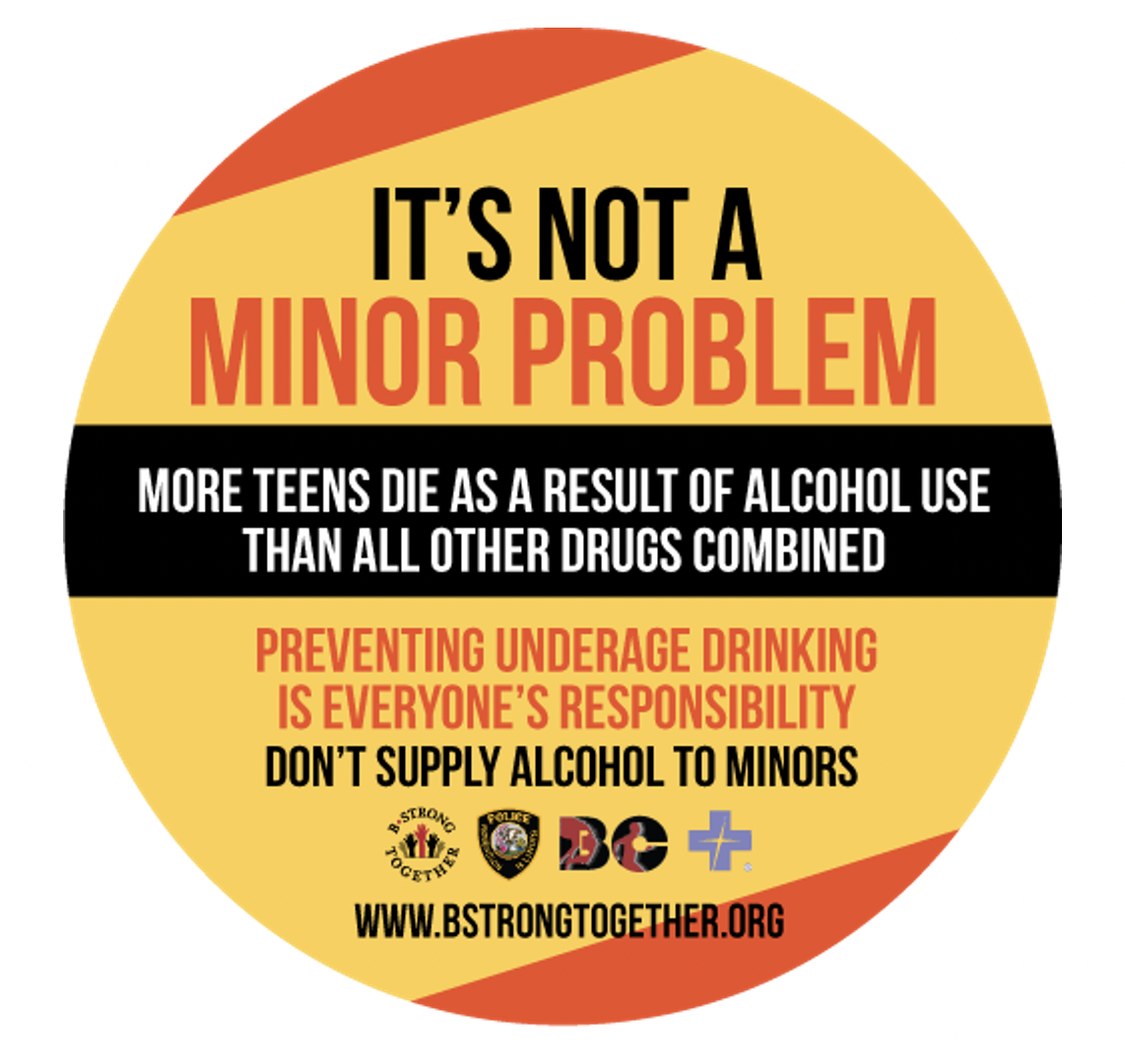Sticker Shock

Underage drinking is a serious public health problem posing enormous health and safety risks to youth in the United States. Alcohol is the most widely used substance among American youth, contributing to more teen deaths than all other drugs combined.
BStrong Together has partnered with Broncos Committed students at Barrington High School, with support from the Barrington Police Department and Advocate Good Shepherd Hospital, to participate in the national Sticker Shock campaign created to educate, inform and remind the adults in the community about the dangers and consequences of providing alcohol to minors.
The Sticker Shock campaign reminds adults about the negative consequences of providing minors with alcohol at the point of purchase in places where alcohol is sold. The first Sticker Shock stickers and bottle tags were placed by students on random alcohol packaging in Barrington area stores in May of 2021 to coincided with the annual Honk for Sobriety event coordinated by Broncos Committed as well as Barrington’s prom and graduation celebrations. The campaign will continue to remind adults of the dangers of underage drinking and not to provide alcohol to minors throughout the year with particular focus on the holiday seasons as well as prom and graduation. (If you are planning to host teens in your home, be sure to check out our Tips for Hosting a Safe Party handout to help keep both you and them safe.)
ADULTS MATTER
According to the 2018 Illinois Youth Survey, adults contribute much to teens’ attitudes toward alcohol, as well as their access to it. 63% of Illinois high school seniors reported it would be easy for them to get alcohol, with 44% reporting getting their alcohol most frequently from their parents and 30% reporting that they obtained their alcohol most frequently from an adult other than their parent with that adult’s permission.
Teens who decided not to drink cited parental disapproval as the main reason.
Some parents may think providing alcohol to teens is harmless or may even be helpful in teaching them how to handle alcohol before they turn 21 years old. However, many studies have shown that is not the case. The Center for Disease Control has reported that 90% of underaged drinking may be categorized as “binge drinking.” Early alcohol use is also correlated with higher rates of alcoholism, depression and mental health issues later in life.
Nationally, 73% of teen auto fatalities are alcohol related (NHSTA, 2017). According to the National Center for Drug Abuse Statistics, alcohol kills more teens than all other drugs combined.
Learn more about the consequences of underage drinking in this Community Conversation video from Advocate Good Shepherd Hospital and Advocate Health Care.
HOW YOU CAN HELP
Adults need to help kids be safe. Parents are encouraged to talk about the risks of underaged drinking with their children and teens often, model responsible drinking, and not provide alcohol to minors. Here are some additional resources to help inform and guide you:
- Talking with Your Kids About Underage Drinking – Talking Tips from BStrong Together
- Ways to Say “NO!”
- What You Can Do to Help Guide Your Teen Through Adolescence
- Underage Drinking – NIH
- Drug Use Among Youth: Facts and Statics
- Impaired Driving: Talk With Your Kids
- Top 10 Safety Tips for Parents During Prom & Graduation Season
- Tips for Hosting a Safe Party
- Illinois Social Host Law
